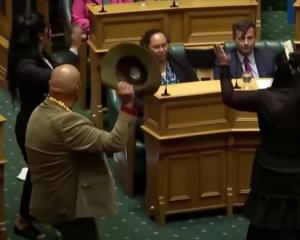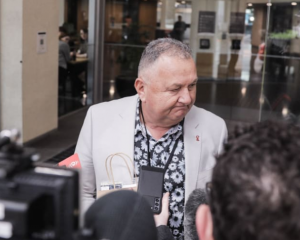If New Zealand troops making up the provincial reconstruction team in Bamiyam imagined their tour of duty in Afghanistan was going to be a cakewalk, they received a welcome to the contrary just days after their recent arrival in the troubled country.
Insurgents greeted a convoy of the newly arrived soldiers - on patrol in the dangerous northeastern corner of the province - with an ambush comprising rocket-propelled grenades and light arms fire.
Bullets smashed into windscreens of their armoured vehicles as the convoy traversed a link road through a steep valley.
But for a lack of heavier weaponry among the Taliban insurgents, and without the degree of luck the troops evidently enjoyed on this occasion, some New Zealand families might well have been thrown into grief and mourning; and this is from an area of the country recognised as being one of the more stable.
The incident is a reminder that, with respect to the insurgency, the situation in Afghanistan is at best unpredictable and at worst lethal.
The murder on Wednesday of five British soldiers by a policeman in Helmand province, along with a suggestion in the United Kingdom press that members of the Taliban have infiltrated the Afghani police force at all levels, adds to the picture of a country in deep crisis.
As much as various parties are putting a brave face on the outcome, the chaos surrounding the return to power of President Hamid Karzai does little to engender confidence in future stability of the country, or in the bedding down of a robust democratic system.
The announcement of the president's "re-election" came on Monday following a furious 24 hours or so of negotiations and diplomatic entreaties.
This, in turn, had been precipitated by the announcement that Mr Karzai's only rival in the presidential run-off, Abdullah Abdullah, had withdrawn from the race.
Officials, both local and international, had to decide whether to persist with the vote, due to have taken place tomorrow, or continue as planned and risk turning the election into a farce.
Given the security concerns and expense of holding the ballot - and the probability of a "one-horse race" undermining the legitimacy of the exercise - there was in the end only one option.
But it is not an option that enjoys unanimous approval.
Mr Karzai's supporters may have taken to the streets in celebration in the Pashtun-dominated south and east of the country, and in cities such as Herat, but the response elsewhere - including in the drawingrooms of London, Washington, and Brussels - has been muted.
The requirement for the election run-off was prompted by the widespread corruption associated with the Karzai camp in the first round of the elections in August.
It is now widely accepted that Mr Karzai has been a weak leader presiding over a fractious and corrupt government.
It is hardly the demonstration of democracy that the West must have been hoping for, and will have done little to win over the hearts and minds of those already resistant to the presence of Nato forces in the country.
British Prime Minister Gordon Brown has been quick to signal the need for reform in Afghanistan, telling Westminster that the country "now needs new and urgent measures for tackling corruption, strengthening local government and reaching out to all parts of Afghan society . . ."
President Barack Obama, of the United States, is reported to have spoken to Mr Karzai after his "victory", calling for a "new chapter" of better governance following the fraud-ridden election.
These are hardly ringing endorsements.
But given its commitment to the Nato deployment and to the mission to neutralise the Taliban, it is clear the West had little option but to endorse the renewed presidency, however flawed both the individual and the process.
And in relation to President Obama, the "messy" way the re-election unfolded will do little to clarify his intentions as to the deployment of a further 40,000 troops.
He can only hope that Mr Karzai makes wiser choices in the weeks ahead and is able to forge a credible government comprising power-brokers from different factions, including those of Mr Abdullah.
With the Taliban emboldened and now setting its sights even on the New Zealand reconstruction team in Bamiyam, more of the same disfunctional and fraudulent governance cannot and should not be tolerated.
If it begins to appear as if it might be, Prime Minister John Key should instruct his foreign policy gurus to assemble an exit strategy for both the Bamiyam team and the SAS currently deployed in Afghanistan.












